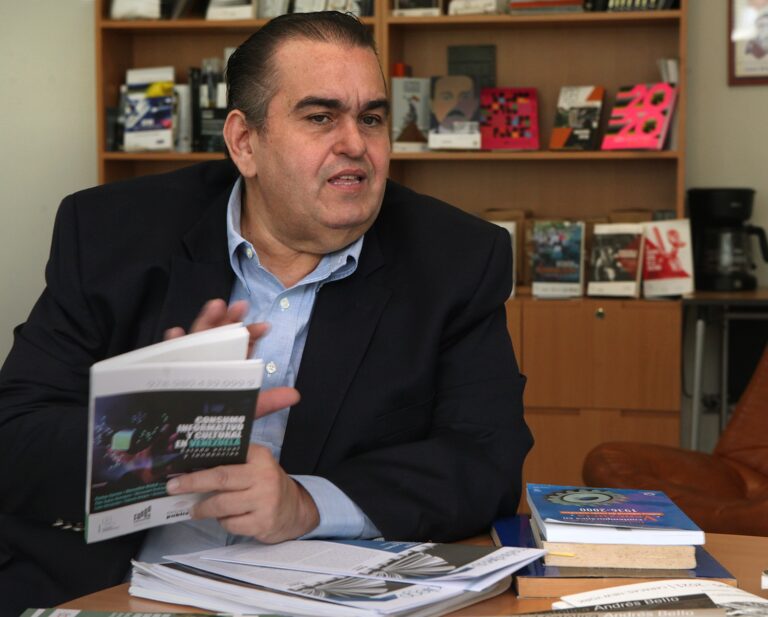(CPJ/IFEX) – The following is a 17 September 2004 CPJ letter to Attorney General Isaías Rodríguez Díaz: September 17, 2004 Isaías Rodríguez Díaz Attorney General, Bolivarian Republic of Venezuela Edificio sede del Ministerio Público Caracas, Venezuela Via facsimile: 58-212-576-4419 Dear Sir: The Committee to Protect Journalists is writing to request an immediate and thorough investigation […]
(CPJ/IFEX) – The following is a 17 September 2004 CPJ letter to Attorney General Isaías Rodríguez Díaz:
September 17, 2004
Isaías Rodríguez Díaz
Attorney General, Bolivarian Republic of Venezuela
Edificio sede del Ministerio Público
Caracas, Venezuela
Via facsimile: 58-212-576-4419
Dear Sir:
The Committee to Protect Journalists is writing to request an immediate and thorough investigation into the murder of Venezuelan journalist Mauro Marcano, who was killed by unidentified attackers while he was leaving his home on September 1 in the city of Maturín, the capital of eastern Monagas State.
Marcano, a radio host and columnist, was shot dead at around 7 a.m. in his apartment building’s parking lot, according to local news reports. Next to his body, police found his handgun, which he had apparently reached for to defend himself, your office has stated.
Marcano hosted the radio show “De frente con el pueblo” (Facing the People), broadcast daily from 8 a.m. to 10 a.m. by Radio Maturín. In addition, he wrote a weekly column titled “Sin bozal” (Without Muzzle) for the Maturín-based daily El Oriental.
At the time of his murder, Marcano was also a municipal councilman for the regional political movement Fuerza Monaguense. Before joining Fuerza Monaguense, he had long been involved in politics with the Movement toward Socialism party.
Justo Estaba Millán, Radio Maturín’s press coordinator, said that Marcano had hosted his show at Radio Maturín for about four years. According to Estaba, Marcano aggressively denounced drug trafficking and police corruption. Estrella Velandia, El Oriental’s director, told CPJ that Marcano’s columns discussed drug trafficking, contract killings, and police corruption. Velandia said that in the past, police have been able to capture drug traffickers based on information from Marcano’s reports. According to Velandia, Marcano said he was used to living with threats and knew how to defend himself.
In one of several topics he covered in his last column, published on August 31, Marcano said there was a rumor that police had confiscated 11 kilos of cocaine in a recent bust instead of the 4 kilos they had reported. If the rumors proved true, Marcano said, then police should account for the missing amount of cocaine.
The day of his murder, Marcano was supposed to appear on a noon show at regional television channel Televisora de Oriente (TVO) to discuss recent invasions of privately owned land by landless families, according to TVO journalist Yolimar Bastidas.
We urge you to conduct an in-depth, timely, and public investigation into the murder of Mauro Marcano, and to ensure that those responsible are brought to justice. CPJ continues to monitor this inquiry to determine if Marcano was killed for his journalistic work. We look forward to receiving more information about this case from your office.
Sincerely,
Ann K. Cooper
Executive Director
CC:
Jesse Chacón Escamillo, Minister of Interior and Justice
William Brownfield, U.S. Ambassador to Venezuela
Bernardo Alvarez Herrera, Venezuelan Ambassador to the U.S.
Eduardo Bertoni, Special Rapporteur for Freedom of Expression (OAS)


